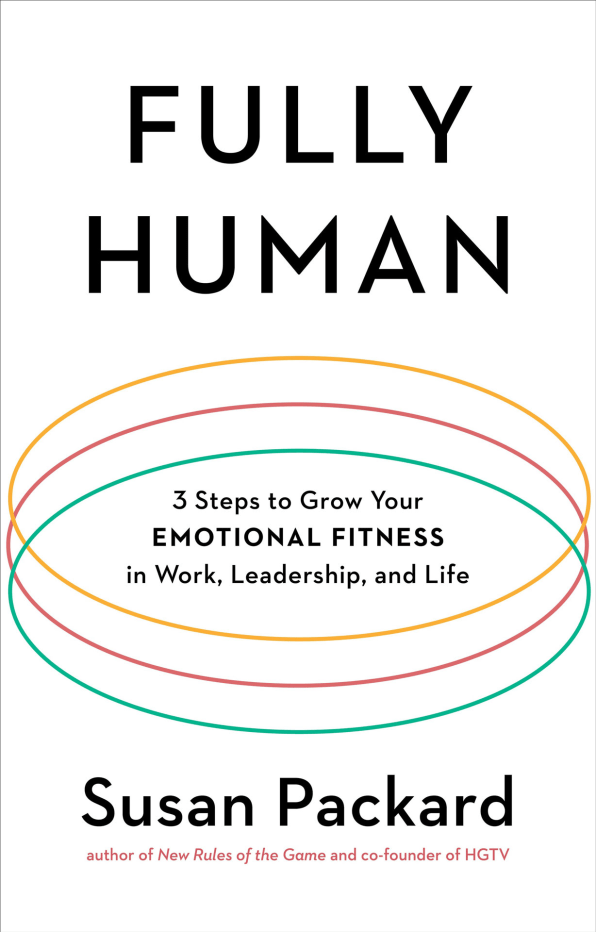#Leadership : #WorkPlace -The Quest for #AffordableChildcare is Crippling U.S. Workers… A Great REad for ALL!
Before Sheila Lirio Marcelo launched Care.com in 2006, before she led it through a successful IPO (with a $554 million valuation) in 2014, and before the CEO and chairwoman steered the marketplace for finding and managing family care through 12 consecutive quarters of profitable growth amassing more than 30.8 million members in over 20 countries, she didn’t feel like she could tell her employer she was a mother.
“I hid the fact that I was a mom because I was judging myself,” Lirio Marcelo recalls, “because I was thinking that other people would perceive me as not a great performer because I had children at home.” Although this happened nearly 20 years ago, Lirio Marcelo’s fears continue to be commonplace among the workforce. According to findings from a survey by Harvard Business School, very few employees are willing to admit to their organizations that they are caregivers for fear that it will undermine their career prospects.
Instead of putting her head down and hoping no one would ever ask, Lirio Marcelo used this experience to develop herself as a leader. By questioning the lines she was drawing around professionalism and how family and motherhood played into that, she asked herself: “Is that how I think of other people? Is that the right way to think about it?” Lirio Marcelo realized that if she was doing that to herself, she was likely going to treat her employees the same way. She concluded it wasn’t a healthy way to have work-life balance and left that job shortly thereafter. “I quickly realized I couldn’t bring my whole self to work,” Lirio Marcelo says. “It wasn’t a good cultural fit.”
But that got her thinking about caregiving more broadly as she worked her way through other jobs before accepting a position as an entrepreneur-in-residence at Matrix Partners where she refined a business plan for Care.com.
Despite her earlier conflicted thoughts on motherhood and career, to hear Lirio Marcelo tell it, being a female founder who would eventually take the helm of a large public company wasn’t all that strange. As a Filipino-American, Lirio Marcelo was steeped in a matriarchal culture where there was no shortage of female role models in corporate and government realms.
Like this Article ? Share It ! You now can easily enjoy/follow/share Today our Award Winning Articles/Blogs with Now Over 2.5 Million Growing Participates Worldwide in our various Social Media formats below:
FSC LinkedIn Network: www.linkedin.com/in/fscnetwork
Facebook: http://www.facebook.com/pages/First-Sun-Consulting-LLC-Outplacement-Services/213542315355343?sk=wall
Google+: https://plus.google.com/115673713231115398101/posts?hl=en
Twitter: Follow us @ firstsunllc
Question: Want the ‘the best/current articles/blogs on the web’ on Job Search, Resume, Advancing/Changing your Career, or simply Managing People?
Answer: Simply go to our FSC Career Blog below & type(#career, #leadership, #life) in Blog Search: https://www.firstsun.com/fsc-career-blog/
What Skill Sets do You have to be ‘Sharpened’ ?
Continue of article:
“My mother is incredibly assertive–sometimes borderline aggressive–but on a very positive note,” says Lirio Marcelo with a laugh. Yet she describes her father as a “teddy bear” who was nurturing to her and her siblings. “There weren’t stereotypes of gender for me around leadership,” she explains. “And there was never a question in my mind whether to pursue a career, be the breadwinner, or support my family, it’s part of our matriarchal culture.”
But the fact that she founded a marketplace for caregivers was also steeped in Filipino culture. The country is a world leader in exporting caregiving labor, she points out. And not long after the business was established, Lirio Marcelo remembers that her mother took her aside and said, “It is really interesting that you pursued this, because this is who we are.” As a self-professed global citizen, Lirio Marcelo maintains that her upbringing teaches that a more nurturing and caring culture can make a meaningful difference in all peoples’ lives. “This is something I can add to the mission and leadership of the company,” she says.
CHALLENGING THE PERCEPTIONS OF THE CARE ECONOMY
It’s something she’s held onto throughout the vicissitudes of growth, particularly just before the IPO. About six months before going public, Lirio Marcelo recalls that an analyst sat her down and said it was going to be tough. The challenge was not only that a majority of analysts didn’t know what Care.com was about, but also because it was seen as a female-focused business. The analyst’s advice was to just concentrate on producing eight quarters of profitable growth. “I guess it managed my expectations as we went on the journey,” Lirio Marcelo admits.
That single-minded focus would serve her well as the stock price dipped sharply between 2015 and 2016. Lirio Marcelo says that the IPO market shifted during that time, and the “flavor of the month” were companies that could produce profits faster. Lirio Marcelo recalls knowing that it might take years to get there.
“I kept reminding myself of how difficult it was being a young mom, 20 years old and an undergrad, juggling,” she muses. Although she understood that a $5 stock was a challenge, Lirio Marcelo contends she faced larger ones throughout her life. She had faith that if she continued to focus and run the business with clarity and transparency, she could turn things around. “It was a multiyear [fusion_builder_container hundred_percent=”yes” overflow=”visible”][fusion_builder_row][fusion_builder_column type=”1_1″ background_position=”left top” background_color=”” border_size=”” border_color=”” border_style=”solid” spacing=”yes” background_image=”” background_repeat=”no-repeat” padding=”” margin_top=”0px” margin_bottom=”0px” class=”” id=”” animation_type=”” animation_speed=”0.3″ animation_direction=”left” hide_on_mobile=”no” center_content=”no” min_height=”none”][process],” she says, “that required a sense of resilience and stress management.”
The bigger issue was that Care.com was still considered a niche business, even though, as Lirio Marcelo observes, caregiving affects everyone–people must take care of children, elders, and pets, not to mention their homes. The problem, as she notes, is that unconscious and conscious biases persist. “Care represents love and is often associated with the female world, and because of that it is considered a soft issue and must not be an economic driver–when the reality is, it is,” says Lirio Marcelo.
THE LIFE-CHANGING IMPACT OF CAREGIVING
She describes the arc of life in terms of caregiving, starting with the importance of brain development in children from infant to age 4. Research has proven that children are more competitive and have better life outcomes if they are taught a certain number of words earlier. Obviously caregivers can play a very important role in this development. The problem, as she sees it, is that we in the U.S. have a weak infrastructure for care. Not only do most employers fail to provide enough paid leave, but many don’t support their employees to hire caregivers. It’s not just about money–it’s about providing an environment where workers aren’t penalized if they have to care for a child or an elder themselves. The perception that they are somehow less than professional if they have to care for a loved one is why they–as Lirio Marcelo did once upon a time–hide the fact that they are responsible for others’ care.
Women primarily step off their career tracks when faced with the cost of caregiving–something that doesn’t get counted in the GDP. Feminist economists argue that a male-centric study of the GDP is inaccurate, as it leaves out the paid and unpaid contributions of women. But those models persist.
Then there’s the end-of-life care, which is rapidly rising as baby boomers age. Many would prefer to age in place, but again, they need to be cared for in order to remain safe and not resort to emergency care, which Lirio Marcelo says is a key driver of the U.S. budget deficit.
A 2016 report from the National Survey of Children’s Health revealed that 2 million working parents had to quit their jobs that year because of childcare issues. And 1 in 5 U.S. workers reports they are currently providing assistance for older relatives and friends, according to a report by the AARP Public Policy Institute. A majority (70%) of those took time off or had to make other work arrangements to handle care.
THE ECONOMIC IMPERATIVE OF CAREGIVING
“There’s a whole litany of things missing in our care infrastructure,” says Lirio Marcelo. But the bottom line is a codependency conundrum. “You need to work to pay for great care, and you need great care to work,” she explains, and this affects everyone, regardless of gender. From the start of life with brain development, to end-of-life care, she underscores, “Our care infrastructure drives our economy, and my job is to raise awareness of this ‘soft issue’ that’s not soft at all. It’s an economic imperative.”
The challenge for Lirio Marcelo as she leads Care.com forward is to come up with innovative and cost-effective solutions for care. She points out how they created a way for families employing caregivers to set up funds with extra money so they can use them to buy groceries and gas. And she notes that Starbucks is now offering their more than 180,000 U.S. employees a benefit that could be a huge boon. In partnership with Care.com they are offering an online service called Care@Work, and will receive 10 subsidized backup care days a year for kids and adults.
We still have a long way to go. Harvard Business School’s Joseph B. Fuller and Manjari Raman who authored the aforementioned study say that “American companies are facing a caregiving crisis–they just refuse to acknowledge it.” They insist that the impact of caregiving (or lack thereof) on companies and the economy should be measured. Lirio Marcelo believes there has to be public-private partnerships, because bean counting and government funding can’t do it all. It’s going to take a village, she says, “not just to raise a child but to support families.”
FastCompany.com | February 18, 2019
[/fusion_builder_column][/fusion_builder_row][/fusion_builder_container]











 Which one are You?
Which one are You?